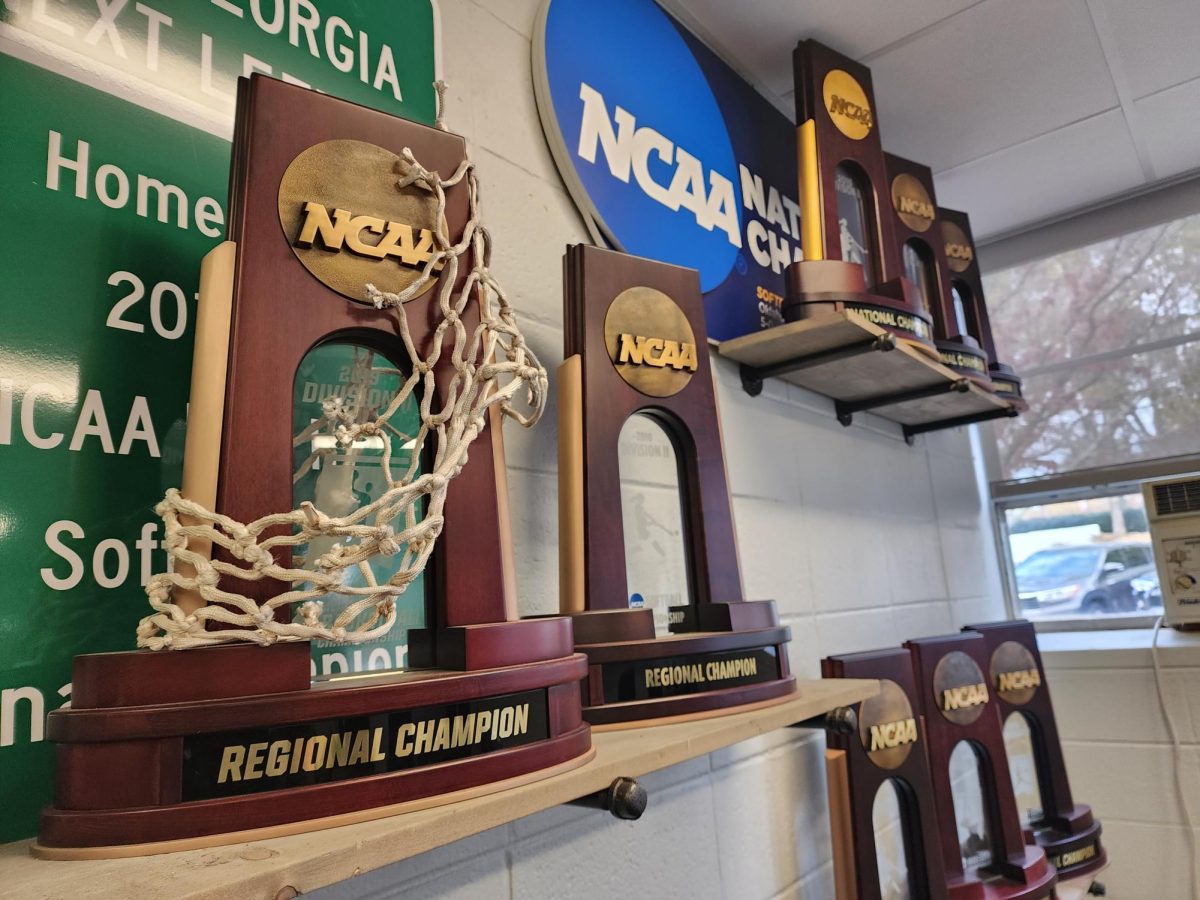Whether an athlete is playing middle school or professional sports, everyone struggles with mental health.
The World Health Organization defines mental health as “a state of mental well-being that enables people to cope with the stresses of life, realize their abilities, learn well and work well, and contribute to their community.
For this article, the definition will be minimized to: stress, anxiety and depression in athletes.
Charlotte Warren, a mental health and performance clinical counselor with the University of Georgia’s athletic program defines mental health as “a person’s mental wellness on a spectrum. It can vary so much on the individual and what they’re experiencing.”
In her interview, Warren discussed mental health aspects that affect athletes, added pressures with NIL deals and trends she has noticed in athletes’ mental health.
To further discuss mental health, specifically in college student-athletes, I spoke to Derek Suraine. Suraine is the senior associate athletic director, internal operation at the University of North Georgia. He also has a background in sports medicine.
In Suraine’s interview, he gives his definition of mental health and what UNG does for their athletes’ mental health.
The next person I spoke with on mental health in college athletes was UNG men’s golf coach Bryson Worley. In his interview he gave insight into how mental health plays into golf and what he does for his own mental health as a coach.
In fall of 2021, the National Collegiate Athletic Association conducted a research study on college student-athletes’ mental health. They polled 9,800 student-athletes and here is how they responded. The top factors that negatively impacted mental health in the student-athletes are academic worries, planning for the future and financial worries. 56% reported that they know how to help a teammate who is experiencing a mental issue. 47% indicated that they would personally seek help from an on-campus resource. 63% said that their teammates take the mental health of fellow teammates seriously, but 53% said that coaches take mental health concerns of their athletes seriously. Half of the student-athletes polled believe that mental health is a priority to their athletics department.
On the professional level of sports, two athletes that have been open about their mental health are Angela Lee and Robin Lehner.
Lee is a decorated mixed martial artist who fights in ONE Championship. She is the former atomweight champion in ONE Championship.
Prior to one of her championship defense fights, she felt a lot of pressure to perform well. She said things to herself like “If I miss weight, I’m going to lose everything” and “If I lose this fight, I’m going to lose everything.” That pressure reached a boiling point in November 2017 when she got in her car and was in a wreck. Her wreck was not an accident, but a suicide attempt.
After her suicide attempt, she sought help for her mental health and has been transparent about her mental health journey ever since.
In a first-person essay for The Players’ Tribune that was published on Sept. 19, she detailed her mental health journey and wrote, “It’s difficult to say and may be difficult to hear, but I need to share the full picture.”
In the essay, she also revealed that her sister took her own life at the age of 18.
Lee started the non-profit organization FightStory, which encourages people to be open about their mental health.
At ONE Fight Night 14 on Sept. 30, Lee announced her retirement from professional mixed marital arts.
Another athlete who has been open about their mental health journey is National Hockey League goalie Robin Lehner.
On March 28, 2019 while Lehner was playing for the New York Islanders, he had a panic attack during the game. While playing in the game, he was experiencing chest pains and thought he was having a heart attack. The trainers were able to calm him down and Islanders’ General Manger Jason Botterill came to the locker room to check on him. This was a turning point for him and he knew he needed to get help.
Lehner went to rehab and was diagnosed with bipolar 1 disorder, ADHD and PTSD. Prior to rehab, he struggled with substance abuse of sleeping pills and alcohol.
Since his stay in rehab, he has been sober and transparent about his mental health journey. Like Lee, he wrote a first-person essay for The Athletic where he talked about his mental health journey.
Lehner was awarded the Bill Masterton Trophy for the 2018-2019 NHL season. The trophy is given to the player that best shows perseverance, sportsmanship and dedication to hockey. In his acceptance speech, he said, “I’m not ashamed to say I’m mentally ill, but that doesn’t mean I’m mentally weak.”
Mental health struggles are not just specific to athletes. According to a 2022 study by Mental Health America, 19.86% of American adults live with a mental illness. That is the equivalent to 50 million Americans.
Athletes of all levels struggle with mental health, and as Lee and Lehner have shown, it’s okay to be transparent. Through their transparency of their own mental health struggles, they hope others will speak up and be open about their mental health.
MENTAL HEALTH RESOURCES
Suicide Prevention Lifeline: 988 or 1 (800) 273-8255
Georgia Crisis and Access Line: 1 (800) 715-4225
UNG Counseling: (706) 867-4402
The UNG student counseling office is located in the Stewart Success Center building in Suite 246 on the Dahlonega campus and in the Student Center in Room 115 on the Gainesville campus.






















